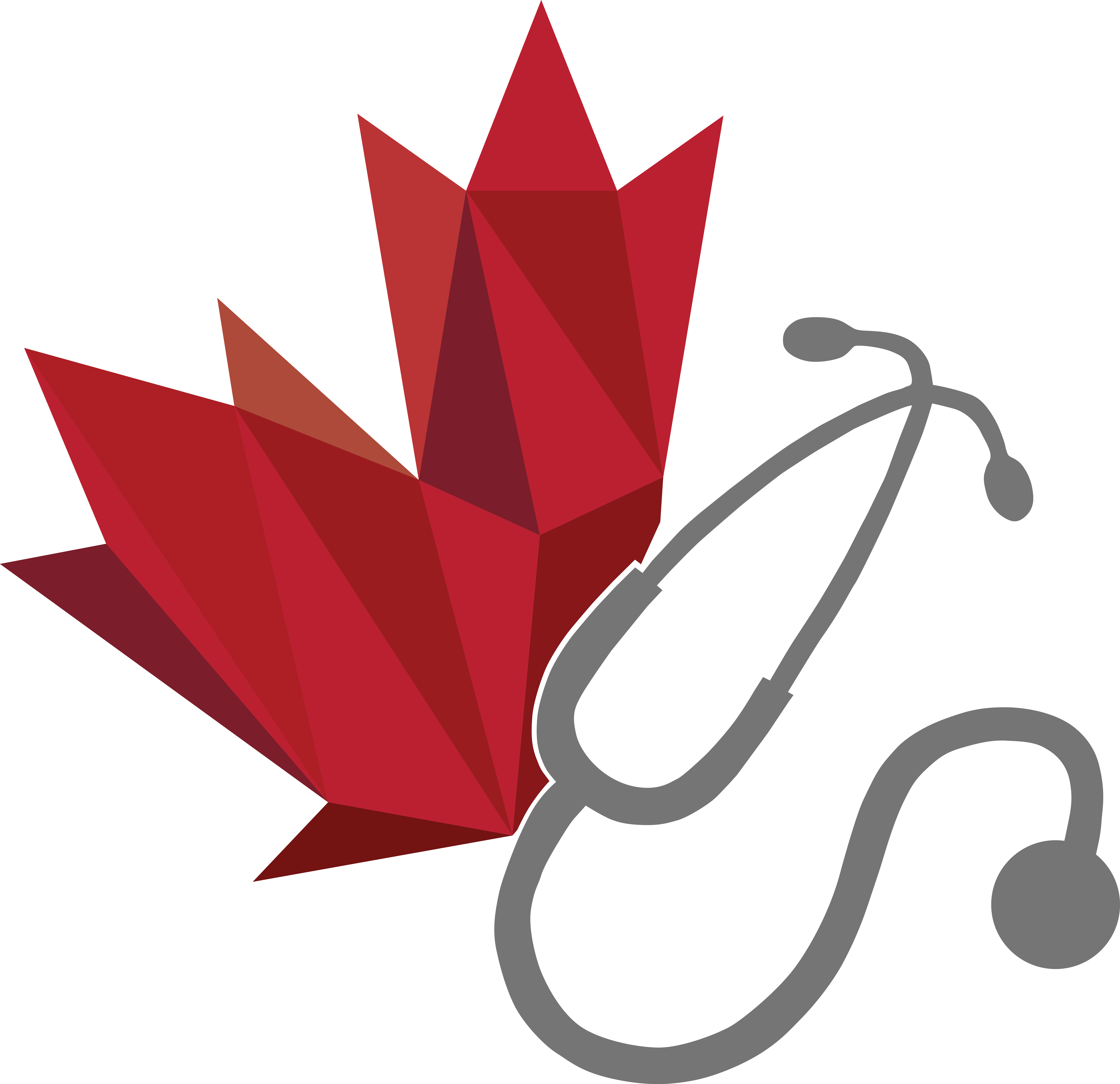About the CFMS
The CFMS is an organization representing over 8,000 medical students from 15 Canadian medical student societies from coast to coast. We represent medical students to the public, to the federal government, and to national and international medical organizations.OTTAWA, OCTOBER 31, 2017 – Medical student mistreatment is a known issue for Canadian trainees – with almost 60 per cent of final year students reporting being personally mistreated during medical school, a rate that has increased during the past three years.
It is because of those concerning statistics that the Canadian Federation of Medical Students (CFMS), the national body representing over 8,300 medical students at 15 medical schools across Canada, applauds the World Medical Association (WMA) Statement on Bullying and Harassment Within the Profession.1 The statement was adopted this month at the WMA’s 68th General Assembly in Chicago.
“It is so encouraging to see more and more attention being drawn to professionalism in medicine. It is my hope that the profession will continue to strive for safe workplaces and learning environments that are worthy of the patients we serve,” says Henry Annan, CFMS President.
Medical student mistreatment can range from verbal harassment and public humiliation to threats of limiting future career opportunities. In a national survey conducted by the Association of Faculties of Medicine of Canada (AFMC) in 2017, 59.6 per cent of medical students in their final year reported being personally mistreated.2 Last year the rate was 53.0 per cent and in 2015 it was 50.6 per cent.3 Of students reporting mistreatment, 89.6 per cent report mistreatment by faculty and 34.1 per cent by residents.3
Mistreatment within the profession is also an issue internationally, as evidenced by the WMA’s statement. Among U.S. medical students, 42 per cent reported having experienced harassment and 84 per cent experienced belittlement during medical school.4 These students were significantly more likely to be stressed, depressed, and suicidal; to drink alcohol or binge drink; and were significantly less likely to be glad they trained to become a doctor.4
Of additional concern is that most Canadian medical students do not file a report when they experience instances of mistreatment. More than 80 per cent of students who had experienced mistreatment stated they had not reported it to their medical school or a designated faculty member.3 Only 35.9 per cent of students were satisfied with the outcome of having reported instances of mistreatment.3
Reasons cited by students for not reporting mistreatment included that ‘the incident did not seem important enough to report’ (64.7 per cent), ‘I did not think anything would be done about it’ (47.1 per cent), and ‘fear of reprisal’ (35.3 per cent).3
The CFMS, in collaboration with the Ontario Medical Students Association (OMSA) and the Canadian Medical Association (CMA), continues to advocate for a change in the professional culture of medicine. The CFMS Past-President, Dr. Franco Rizzuti, and OMSA past Co-Chair, Dr. Ali Damji, were panelists at the CMA General Council meeting in August 2017 on the topic of professionalism in medicine. They were quoted in a recent Canadian Medical Association Journal (CMAJ) article on ‘medicine’s bullying problem’.5
The CFMS issued a policy statement on clerkship work environments, and has co-lead sessions at various national conferences on mistreatment.6 The CFMS, in association with the Fédération médicale étudiante du Québec (FMEQ), has conducted a national medical student wellness survey, and will publish the results in 3 to 6 months.
Quotations from the CFMS Board of Directors:
“This statement by the WMA articulates the international importance to the medical community of a safe learning environment. The CFMS will work with national partners, and local medical student associations to enhance mistreatment awareness, supports and processes.”
Dr. Franco Rizzuti, CFMS Past-President & Board Chair
“Training to be a doctor is challenging, and it is reasonable to sometimes feel overwhelmed by the sheer amount you have to learn in medical school and to question your abilities as you develop clinical experience. What is not reasonable is to be humiliated or treated as incompetent in front of peers, superiors, patients and their families. Maintaining the credibility of the individuals involved in a patient’s care is critical for the development of trust. If that bond is broken, the negative consequences impact the patient and their relationship with their care team, and hinders the medical student’s future performance. Training to be a doctor is like climbing a mountain, and the WMA statement addresses the importance of conquering the summit as a team.”
Stephanie Smith, CFMS Vice-President Student Affairs & Executive Vice-President
“Bullying and harassment are never acceptable. The statement by the World Medical Association (WMA) has highlighted the importance of ending mistreatment within the medical profession. Doctors are meant to take care of other people, and should treat their colleagues, both senior and junior, with the same respect they are expected to show patients. Mistreatment is a serious issue that can negatively affect the development of medical trainees, their mental health and wellbeing, and their ability to care for patients. We strongly encourage medical schools and those in the medical profession to make ending mistreatment a priority.”
Christina Schweitzer, CFMS Vice-President Communications
Footnotes:
-
World Medical Association (WMA). WMA Statement on Bullying and Harassment Within the Profession. In Chicago; 2017. Available from: https://www.wma.net/policies-post/wma-statement-on-bullying-and-harassment-within-the-profession/
-
The Association of Faculties of Medicine of Canada (AFMC). AFMC Graduation Questionnaire National Report 2017 [Internet]. 2017. Available from: https://afmc.ca/sites/default/files/documents/en/Publications/2017_GQ_National_Report_en.pdf
-
The Association of Faculties of Medicine of Canada (AFMC). AFMC Graduation Questionnaire National Report 2016 [Internet]. 2016. Available from: https://afmc.ca/sites/default/files/documents/en/Publications/2016_GQ_National_Report_en.pdf
-
Frank E, Carrera JS, Stratton T, Bickel J, Nora LM. Experiences of belittlement and harassment and their correlates among medical students in the United States: longitudinal survey. BMJ [Internet]. 2006;333(7570):682. Available from: http://www.bmj.com/content/333/7570/682.long
-
Vogel L. Doctors dissect medicine’s bullying problem. Can Med Assoc J [Internet]. 2017;189(36):1161–2. Available from: http://www.cmaj.ca/content/189/36/E1161.full.pdf+html
-
Canadian Federation of Medical Students (CFMS). Resources to Support the Learning Environment for Clinical Clerks [Internet]. 2014. Available from: https://www.cfms.org/files/position-papers/Clinical Clerk Learning Environment Sept 2014.pdf
Full text of the WMA Statement on Bullying and Harassment Within the Profession:
PREAMBLE
1. Workplace bullying has been recognised as a major occupational stressor since the early 1980s.
2. Workplace bullying is unreasonable and inappropriate behaviour directed towards a worker or a group of workers that creates a risk to health and safety. By definition, bullying is behaviour that is repeated over time or occurs as part of a pattern of behaviour, rather than a single episode. Unreasonable behaviour is what a reasonable person in the same circumstances would see as unreasonable. It includes behaviour that intimidates, offends, victimises, threatens, degrades, insults or humiliates. Bullying can take psychological, social and physical forms. It is not the perpetrator’s intention, but the victim’s perception, that is key to determining whether bullying has occurred.
3. Harassment is unwanted, unwelcome or uninvited behaviour that makes a person feel humiliated, intimidated or offended. Harassment can be related to a person’s ethnicity, gender, sexual orientation, disability or other factors such as whether a person has made a complaint.
4. Employers generally have a legal duty to ensure the health, safety and welfare of their employees. This includes identifying bullying and harassment and taking steps to eliminate and prevent it. Employees are generally required to take reasonable care for their own health and safety as well as for the health and safety of others who may be affected by their acts in the workplace.
5. In recent years, bullying and harassment have become more recognised in the medical profession; there is good evidence that disruptive behaviour, inappropriate behaviour and harassment occurs in the medical workplace. International research has shown that bullying in the healthcare profession is not associated with specialty or sex. It appears that bullying is widespread and occurs across all specialties and at all levels of seniority, although it is fair to say that where bullying occurs it is more common to be inflicted by a more senior employee upon a more junior one. The hierarchical nature of medicine and the inherent power imbalance associated with this can however create a culture of bullying and harassment which, in some cases, becomes pervasive and institutionalized.
6. Workplace bullying can have detrimental effects such as decreased job satisfaction, depression, anxiety, and absenteeism, all of which impact adversely on staff retention and quality of patient care.
RECOMMENDATIONS
7. The WMA condemns bullying or harassment under any circumstances. It further believes that raising awareness of inappropriate behaviour, disruptive behaviour and harassment in the medical profession is an important step in the process of eliminating the problem. The WMA is of the view that this is an issue of professionalism and it encourages National Medical Associations (NMAs), medical schools, employers, and medical colleges to establish and implement anti-bullying and harassment policies.
8. The WMA recommends that NMAs recognise and, where possible, actively address the following:
8.1 Bullying in the health workplace is an entirely unprofessional and destructive behaviour and should not be tolerated.
8.2 Steps should be taken to prevent, confront, report and eliminate bullying at any level.
8.3 Bystanders also have a responsibility to take action.
8.4 There can be significant barriers for junior doctors to speak out about bullying by senior colleagues, for example fear of career retribution.
8.5 Professionalism is not just how we treat our patients, but how we treat each other as professional colleagues. Acting professionally means also being vigilant and stepping in to intervene, for the good of all.
8.6 Bullying is unprofessional, contradicts the fundamentals of the profession and raises fitness to medical practise concerns.
8.7 Healthcare needs good teams. Eliminating bullying ensures a safer team environment and a safer healthcare environment for patients.
8.8 It is the responsibility of the management to maintain a good working environment and address all signs of harassment and bullying. There should be zero tolerance of bullying and harassment
Adopted by the 68th General Assembly, Chicago, October 2017
Source:https://www.wma.net/policies-post/wma-statement-on-bullying-and-harassment-within-the-profession/
About the CFMS
The Canadian Federation of Medical Students (CFMS) is the national organization representing over 8,300 medical students at 15 medical schools across Canada. Founded in 1977, this year the CFMS celebrates 40 years of representing, connecting and supporting medical students – tomorrow’s physicians leading for health today.
For more information:
Christina Schweitzer, Vice-President Communications
Canadian Federation of Medical Students
Email: [email protected]
Cell: 1-587-225-8165
Press release:
[/CFMS Press Release_Bullying and Harassment Within the Profession.pdf](/CFMS Press Release_Bullying and Harassment Within the Profession.pdf)

